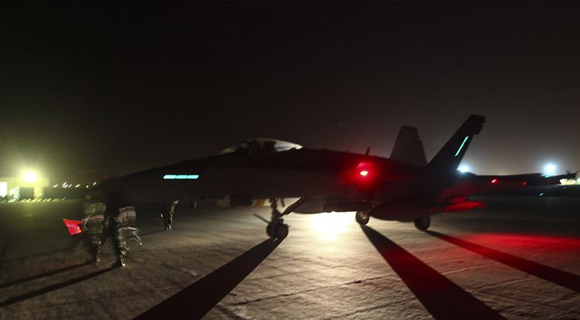United States, France To Strengthen Intelligence Sharing To Defeat ISIL
By Space Coast Daily // November 23, 2015

WASHINGTON, DC — In the wake of the Nov. 13 terrorist attacks in Paris, the United States and France will strengthen intelligence sharing to the fullest extent allowed by law, Pentagon Press Secretary Peter Cook said in a statement last week.
The United States over the past year has worked closely with the French military, intelligence and security services to strengthen intelligence sharing against counterterrorism threats around the globe, he said, specifically those from the Islamic State of Iraq and the Levant.
“In the wake of the recent attack on France, we stand strong and firm with our oldest ally,” Cook said, “which is why the U.S. and France have decided to bolster our intelligence sharing.”
Defense Secretary Ash Carter and Director of National Intelligence James Clapper have issued new instructions that will make it easier for U.S. military personnel to share operational planning information and intelligence with French counterparts “to the fullest extent allowed by existing law and policy,” Cook added.
Intelligence Sharing
The new guidance stresses the strong U.S.-French security partnership and builds on longstanding cooperation that will improve the department’s ability to deter and defeat mutual enemies, particularly ISIL, he said.
During a briefing with defense reporters, Pentagon spokesman Navy Capt. Jeff Davis said Carter has spoken twice since the Nov. 13 attacks with his French counterpart, Defense Minister Jean-Yves Le Drian, with both leaders agreeing to deepen military cooperation over a broad area of common interests.
As part of the Operation Inherent Resolve coalition fighting ISIL in Iraq and Syria, France conducted a strike near Raqqa, Syria, “with the full coalition weight and support behind them,” Davis said.
ISIL Targets
Davis said the targets were nominated by France based on information the United States was able to share with them thanks to the new intelligence-sharing special instruction.
“We’re continuously seeking out and assessing potential ISIL targets,” he added.
Once a target is validated, Davis said, “we take great care, from analysis of available intelligence to selection of the appropriate weapon to meet mission requirements and to minimize the risk of collateral damage, particularly any harm to noncombatants.”
Tidal Wave II
As part of a broader operation called Tidal Wave II targeting ISIL oil revenues, Davis said, the coalition destroyed 116 tanker trucks using A-10 fighters and AC-130 gunships last week.
Since the start of Operation Tidal Wave II in October, the coalition has conducted a massive strike on Omar oil field near Deir el-Zour, Syria, Operation Inherent Resolve spokesman Army Col. Steve Warren said Nov. 13.
“We’ve stepped up our attack [and] focused our targeting on other oil facilities to include al-Tanak and several others,” he said.
Davis said the current phase of Tidal Wave II is designed to attack the distribution component of ISIL’s oil-smuggling operation and degrade its capacity to fund military operations.
Disrupting ISIL Funding
“ISIL steals oil from the people of Iraq and Syria to fund its campaign of terror,” he added.
“The long-term effects of this effort to degrade ISIL oil revenue will take some time to be fully realized,” Davis noted, “but we know that in the short term we are disrupting this significant source of funding that’s being used to kill innocent people and we are in the process of warning civilians to stay clear of oil infrastructure.”
Travel Restriction
U.S. European Command in Stuttgart, Germany, has implemented a travel restriction to France that applies to all DoD personnel, Davis said.
“Until further notice, [Eucom] has prohibited unofficial travel to Paris, and for DoD personnel who are traveling outside Paris, it requires a higher level of approval to go,” he added.
The policy applies to military personnel, DoD civilian employees, contractors and command-sponsored dependents and their families, Davis said.















